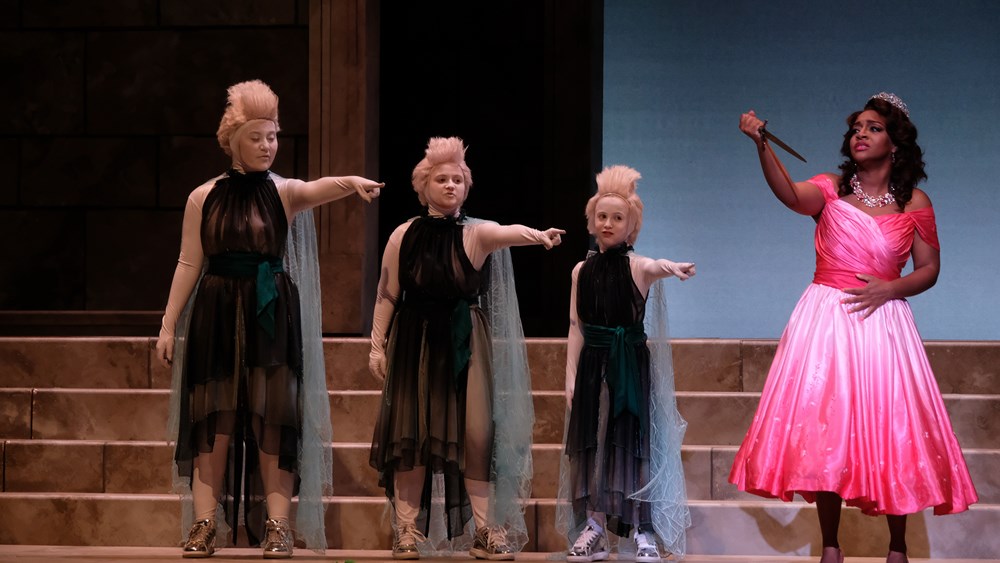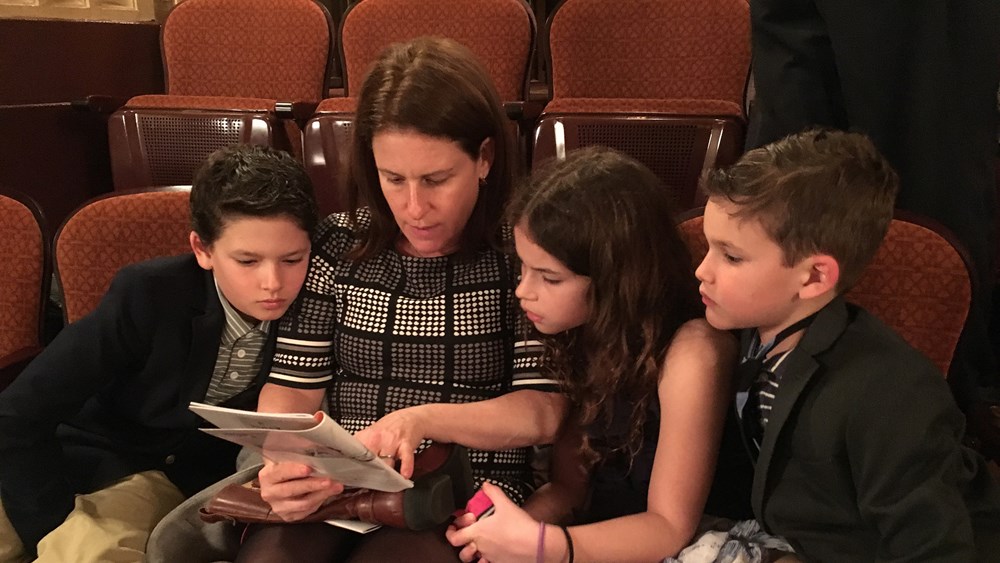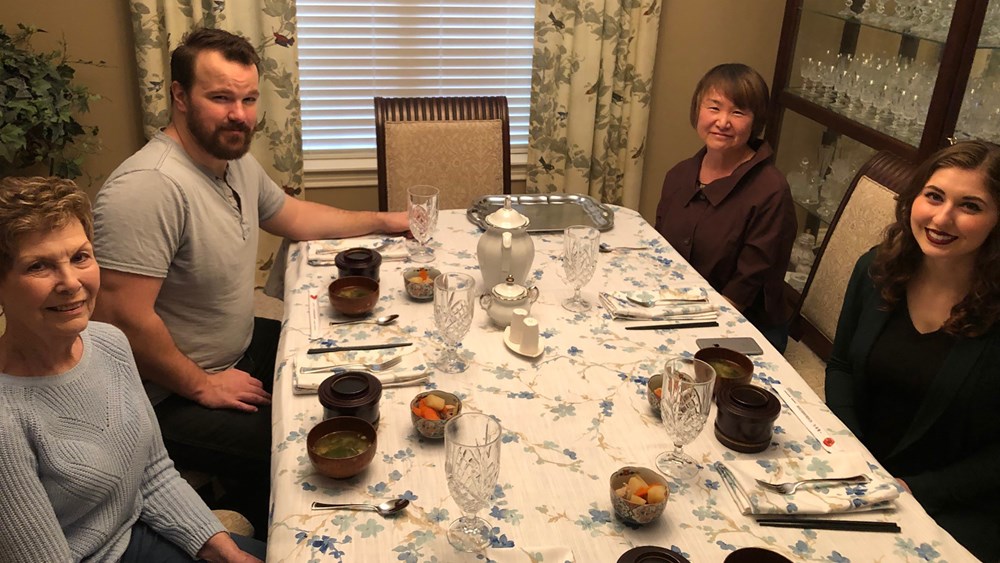First Impressions
New audience members #MeetOpera.
The fact is self-evident: The future of opera depends on its ability to develop new audiences. Devoted, longtime fans, to be sure, are vital to sustaining the art form. They are the backbone of most companies’ audiences, and of their donor lists, as well. But even the most hardcore aficionado was once an opera newcomer. A key task of a company today is to reach potential new audience members and then get them into the theater, in the hope of showing them that opera can appeal to both newcomers and hardcore aficionados alike.
A major hurdle to attracting newcomers can be their preconceptions of the art form. This January, OPERA America is launching a national promotional campaign — #MeetOpera — that aims to reshape the way people view opera and to inspire a new wave of operagoers nationwide. OA will be calling upon opera companies to participate in this social media campaign, which focuses on four key messages: Opera is diverse; opera can happen anywhere; opera involves people of all backgrounds, ethnicities, cultures and walks of life; and opera is alive. United behind the hashtag #MeetOpera, participants will showcase the breadth and vitality of opera and attract new attendees.
#MeetOpera can work in tandem with the many “first-timer” programs companies have already developed to get newbies through the door. LA Opera assembles curated, three-opera “Newcomer Nights” packages. Lyric Opera of Chicago sends targeted offers, including a 50-percent-off “come back” opportunity, to recent first-time purchasers. Fargo-Moorhead’s “Opera Jumpstart” program provides half-price tickets to newcomers, along with a “Jumpstart Kit” with background materials and a coupon for opera glasses. Opera Maine, in a program underwritten by Wells Fargo, offered free tickets to its summer production of The Magic Flute for people ages 25 and under.
Nothing is more of an enticement, though, than the personal connection. Many new operagoers attend their initial performance because a friend, colleague, partner or spouse has brought them there. #MeetOpera attempts to replicate the personal invitation on a much larger scale, encouraging participants “to be the friend who helps people meet opera,” and use casual, welcoming language in their social media posts.
Here are several people whose recent first experiences of operas might well have turned them from greenhorns into aficionados.
Visit meetopera.org to learn how you can participate in the #meetopera campaign.

Grace Casey
Age: 17
Home: Portland, Maine
Occupation: Student
First Opera: The Magic Flute, Opera Maine
What Brought Her: A friend was in the cast
Opera has a bit of stigma about it. I thought of it as dry, boring and hard to follow –– something that old people attend. I went to The Magic Flute because my classmate TK, who wants to become an opera singer, played one of the three genies. But I was worried I’d have a rough time.
In fact, it was quite humorous. At moments we were laughing out loud. The kids in their costumes looked ridiculous. It had some of the best singing I’ve ever heard in my life. It was super awesome.
Like any art form, opera changes with the time. You can’t base your idea of it on what your grandparents saw, or what you’ve seen in the movies.
Brian Neal
Age: 52
Home: Des Moines, IA
Occupation: Software engineer
First Opera: Silent Night, Minnesota Opera
Who brought him: His girlfriend
My girlfriend, Mitra Sadeghpour, who was the director of opera at University of Northern Iowa, dragged me to my first operas. First I went to a dress rehearsal of La rondine, then to a performance of Silent Night. My sense of opera beforehand was not that far from the stereotype. I thought of it as crowded, formal and stuffy. You’d go and not be able to understand what they were saying or what was going on.
At La rondine, I was taken in by the lighting, the set design and the costumes. But it was the live music from the orchestra that really surprised me. I’m a big fan of live music: rock, pop and all that. But I’m not that familiar with classical music, and I’d never heard it live. Hearing the live orchestra was quite an experience.
I was really blown away by Silent Night. They had a rotating stage, and I was not prepared for that. I’d heard a little bit about the story, but to see it enacted was cool, and I liked that they sang in the different languages of the armies. Another thing that surprised me was the acting of the singers. I had pictured them just standing up there and singing. They didn’t do a lot of acting, but they conveyed enough by the way they looked and moved to make it very interesting. It became a very emotional experience.

Deborah and Frank Gill
Ages: 46, 44
Home: Pittsburgh, PA
Occupations: Stay-at-home mother, IT consultant
First Opera: Turandot, Pittsburgh Opera
What Brought Them: A neighbor’s suggestion
Our neighbor Chris Cox [director of marketing at Pittsburgh Opera] suggested Turandot as an opera we could see as a family. Our children were seven, nine and eleven years old at the time, and we were a bit apprehensive about taking them. In our minds, the opera was a place where our grandparents went, and we didn’t think it would be relevant enough for the kids.
But despite any stigmas about opera, we wanted to expose our kids to this art. The boys were less excited because we told them they had to put on nice clothes, but our daughter loves any kind of production. When we got there, we said, “If no one likes this, we can go home after the first act.”
We were floored by their reaction: No one wanted to leave — even our seven-year-old who doesn’t want to sit through anything. They wanted to know how the riddle would be solved; they talked about the sets and the characters. Part of what made it a positive experience, too, was that the moment we walked into the theater, the ushers were so welcoming, commenting to the kids, “You look so nice tonight. What a special occasion it is to be here.”
Watching the opera, it felt a bit like we were brought back into a time when arts and culture had more meaning. Today, the focus on the arts can feel a bit diminished, so we hope that bringing our kids to Turandot will have a lasting impact on how they view the arts the general.
Armida Hoyt
Age: 38
Home: Des Moines, IA
Occupation: Insurance agent
First Opera: La traviata, Des Moines Metro Opera
What brought her: Internet
I’ve always loved theater, musicals and classical music — I’ve been to Broadway shows and the symphony — but I’d never been to an opera before. So when I saw something online about La traviata, I thought it might be something I’d enjoy.
I wasn’t sure what the quality of the performance would be, but the singing, the level of talent, the sets and costumes were phenomenal. And having never been to an opera before, I was surprised by what an experience it was — I’d expected it would be more like what you see in the movies: just someone on the edge of the stage, singing out to the audience. But I didn’t feel like I was just sitting back watching a show, I felt like I was in the show.
After that, I invited about a dozen of my friends to go see La bohème. They decided to get dressed up and really make an evening out of it. Some of my girlfriends had to drag their husbands there, but in the end, they all enjoyed it.
Ben Bolaji
Age: 33
Home: Johnston, IA
Occupation: Senior researcher at an agricultural company
First Opera: La bohème, Des Moines Metro Opera
Who brought him: Armida Hoyt
When Armida invited us to go see La bohème, I didn’t really know what to expect. I’d always just imagined grandstands filled with very dressed-up people. It turned out to be a nice mixed crowd — some people were dressed casually and some were more formal. My wife and I decided to take advantage of the affair and got really dressed up.
The performance itself certainly exceeded my expectations in terms of talent, and the singing and set pieces were enjoyable. I would tell anyone who is curious about opera that they would do themselves a favor by going. I understand it’s not for everybody, but it was definitely for us.

Chieko Hedin
Age: 63
Home: Joplin, MO
Occupation: Travel agent and Japanese language instructor
First Opera: La bohème, Heartland Opera Theatre
Who Brought Her: A friend
Music has been a part of my life for a long time — I’ve sung in a choir for over a decade — so when a friend of mine invited me to go to the opera, I didn’t hesitate. And because my friend was hosting three of the singers from the production, I got to meet them before the performance. I made a traditional Japanese meal for them and learned a little bit about what they do as artists.
The image of opera I’d always had in my mind was from the movie Pretty Woman — that scene where Richard Gere describes to Julia Roberts what opera is like, explaining that even if you don’t understand the language, you’ll know what is going on, and understand the emotions. When I saw La bohème, I found that to absolutely be true; I preferred to just watch the performance rather than read the translations. But unlike the movie, it wasn’t all glamorous — some people were in jeans, others were dressed up.
Now that I know what opera is like, I tell people: Give it a try. Whether you think you’ll like it or not, you may find it to be a valuable experience.
This article was published in the Fall 2019 issue of Opera America Magazine.




